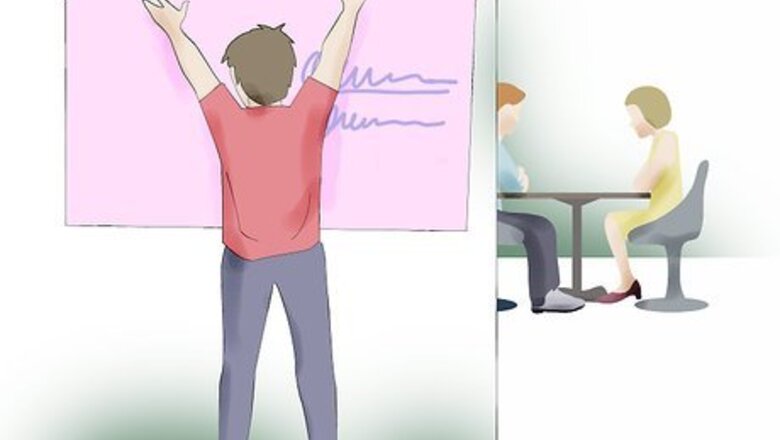
views
Starting out

Find a band to join or start a new one. There are several avenues to accomplish this goal. First, put out fliers saying you're looking to make a band (make an interview or audition). If you know the genre of music you want to play, decide what kinds of instruments you will need and make sure to mention who/what you're looking for in your fliers (e.g. Looking for a jazz trumpet player). Also, post the fliers in places where you'll get the best results. Posting fliers for rock musicians in a jazzy coffee shop won't get you many replies.

Hold auditions until you find the perfect match for you. You may want to interview the musician on their musical interests and work ethic as well to ensure that you will be compatible.
Practice sessions
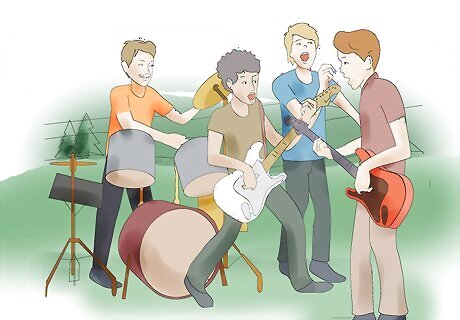
Find a place to practice. Make sure the practice place is accessible to everyone, and easy to use. If the practice area is a 30 minute drive for your drummer, he/she will probably get fed up with having to load/unload the drum set over and over.

Practice on your own so you'll be good and so you'll know your skills. If you practice for a jazz band, go somewhere quiet enough to practice.

When you get your band together, practice a lot. Be sure to make these practices productive. If you spend the whole time sitting around talking about the latest sports event, your band will not succeed (unless you're really lucky).
Developing your own style
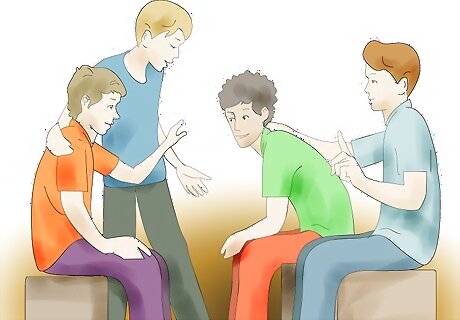
Start finding your sound. This will often come about once the band starts to work together and gel. Every individual's style will come together to form a unique sound.

Make an image for the group. This includes an interesting band name and wearing certain clothes to live shows. If someone hears a hardcore band on stage they sound really great and then they look up and see a bunch of middle aged men with beer bellies wearing wife beaters and mesh shorts they are going to be turned off by them. They want what they see to match what they're hearing.
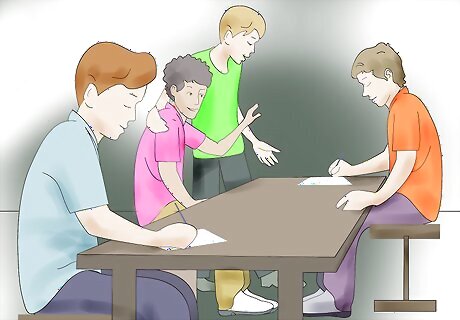
Figure out who's best to write your music. Many bands have 1 or 2 members who write the basics for every song and then let the band take it from there. Other bands may write while jamming with the entire group, although this may take longer.
Recording and playing live
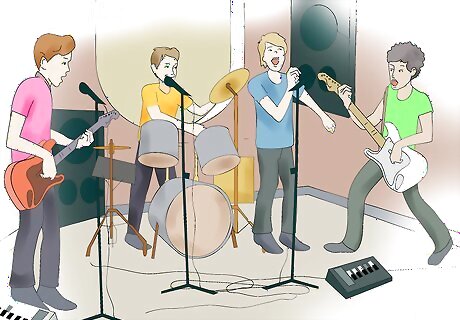
Once you have a decent set of songs, consider recording a demo. If you are serious about your band, and have the funds, you can look into booking some time at a studio. This will be expensive compared to a tape recorder, but the quality will be greatly improved and may result in your band being hired more often. Plus, it'll give you a good quality recording to play for your family and friends until you can get a real album recorded.

Start with small gigs. Call the local clubs and ask if you can play. Find parties to play at. If you're in school, sign up for the talent show, or ask to play at lunch for your peers. By starting small, you can get a taste of how audiences react, what to do when you get better gigs, and make a little bit of spending cash.

Look on craigslist.com. There is a section where club managers and event planners post gig information. These will often be paying gigs and are great ways to expose your band to the public.
Advancing

Get an agent. They know how the business works and who to talk to.

Once you have more spending money, invest in studio time. A few hours in a studio with an experienced engineer can produce wonders. If your band has been performing and practicing together regularly, you should be able to go from one song to the next, just as if it were a gig. House Of The Rising Sun by the Animals was recorded in one take because they had toured with the song for so long, it was second nature. Once you have a quality recording of your band, send it to record companies and radio stations. You can also produce CDs and sell them at your gigs.
Marketing

Create webpages for your band. Myspace.com is a great way to expose your band to the public and there are many other sites with similar programs that are free and work very well, and as much as you may not want to give your music away for free because trust me it really really does help! But remember not many famous bands started off with a Myspace page Make some sort of website for your band and upload downloadable content so that people from all over the world can listen to your music. Also video yourself doing performances and post them to YouTube. This works well in helping your band become popular.Make a Band and Get Discovered Step 20.jpg

Tell everyone you know about your band. Family, friends, people you meet at McDonald's. Get as much exposure as you possibly can.

Once you book a good sized gig, create a poster with a picture of your band and info about the gig. You can create 20 or so copies for a good price and spread them around town. They'll catch peoples eyes and bring more people to your gigs.
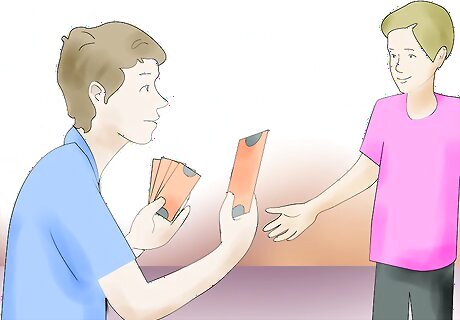
Sell cheap tickets for small gigs hold them in small clubs or parks.
Into the future
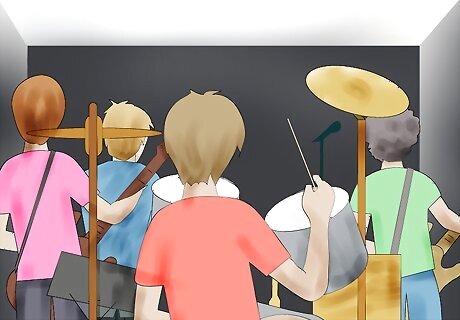
Forget about being nervous, just have fun. If you have stage fright, just find a dark place in the back of the location to look whenever you get nervous. That way you won't be unnerved by your cheering fans.

Above all - continue to practice! You may want to rewrite or redirect songs as your band/sound evolves. This is perfectly okay. It gives you something new and exciting to play, and it gives your fans something to look forward to. Also, try not to get too confident and cocky and don't practice. If you want to have a good band, remember; practice a lot. Taylor Swift Taylor Swift, Singer & Businesswoman Grow your career by continuously setting goals. "As soon as I accomplish one goal, I replace it with another one. I try not to get too far ahead of myself. I just say to myself, 'All right, well, I'd like to headline a tour,' and then when I get there, we'll see what my next goal is."

















Comments
0 comment